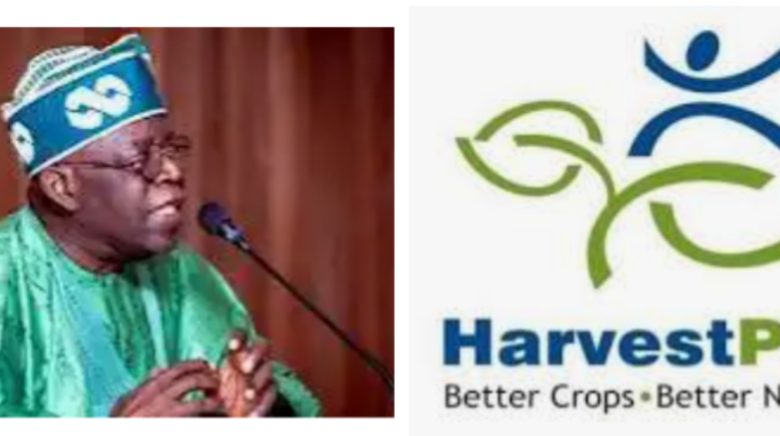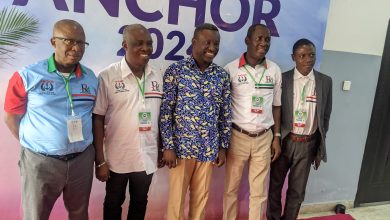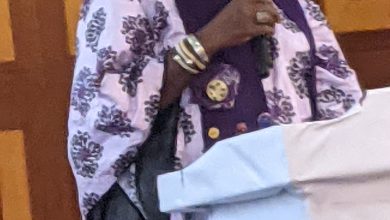FG inaugurates National Biofortification Steering Committee

The Federal Government is committed to meeting the nutritional needs of all Nigerians as part of its plan for building a healthy nation, tackling malnourishment among the citizens and halting the spread of preventable diseases in the country.
To that effect, the government is strengthening collaboration and partnership with HarvestPlus in enhancing the nutritional value of major staples through biofortification with essential micronutrients, especially zinc, iron, and vitamin A.
The Permanent Secretary, Federal Ministry of Agriculture and Food Security (FMAFS), Mr. Temitope Fashedemi made this known at the Biofortification Thought Leadership Series in Lagos, culminating in the inauguration of the National Biofortification Steering Committee.
Biofortification is the process of increasing the density of micronutrients in widely consumed staple crops through conventional breeding techniques.
Fashedemi, represented by the Head of Human Resources, in an address reassured the stakeholders of government’s commitment to food security through biofortification.
“It is with great pleasure and a sense of immense responsibility that I stand before you today at the Biofortification Thought Leadership Series and the inauguration of the National Biofortification Steering Committee.
“This event is jointly organised by the FMAFS in collaboration with HarvestPlus with the objective of fostering a healthy information sharing on available biofortification education, technology, ongoing investment and value chain coordination.
“The Ministry is aware of the challenges faced in meeting with nutritional needs of our growing population but is optimistic of the opportunities available.
“This event is valuable in guiding our policies and interventions aimed at combating malnutrition and ensuring that every Nigerian has access to safe nutrition and sufficient food all year round.
“Food fortification and biofortification of staple crops are well established strategies for addressing micronutrient deficiencies,” said the Permanent Secretary.
Fashedemi harped on the importance of biofortification in maintaining the health of children, women and the vulnerable populations.
“They can offer equitable and affordable nutrients for women, children and other vulnerable populations.
“To reduce micronutrient deficiency, biofortification which enhances the micro nutrient density of widely consumed staple crops can on a yearly basis be integrated into existing crop lists.
“Recently, development organisations have been investing donor funds biofortification to improve Nigeria’s nutrient status.
“Despite the activities of the development partners not much has been achieved due to weak coordination of the various biofortification activities.
“FMAFS will be working closely with HarvestPlus and other donor organisations investing in biofortification to ensure that there is coordination of activities to reduce duplication as much as possible.
“The partnership will be spearheaded by the FMAFS, and the Nigerian Agricultural Seed Council (NASC) and HarvestPlus will be organising this Leadership Thought Series annually to ensure proper coordination of biofortification,” he said.
The inauguration of the National Biofortification Steering Committee marked the high point of the Biofortification Thought Leadership Series, an engagement meeting of high-profile public and private stakeholders involved in the program.
The committee has the objective of fostering periodic information sharing on available Biofortification technologies, ongoing investments as well as value chain coordination alongside the Federal Ministry of Agriculture and Food Safety.
In his remarks, the Acting Director General, Nigeria Agricultural Seed Council, NASC, Dr. Khalid Isyaku,
Isyaku, said that the administration of President Bola Tinubu recognized nutrition as part of the national development plan, pointing out that the government has recorded huge success in the ongoing biofortification of major staples with essential micronutrients, leading to the generation of
Iron Pearl Millet, Zinc wheat, zinc rice, orange sweet potato, vitamin A cassava, and Vitamin A Maize.
“I think we are on the right path. In a few months, we will start getting the result of what the government plans are”, he said.
Expressing satisfaction with the outcome of the engagement meeting, Isyaku said ,” We discussed in the course of our presentation the need for synergy. We don’t work in silos. When you have a budget, you must justify the money you spent. That is what is demanded of our ministries.
It is the responsibility of every research institute to come out with a sustainable way of always providing the early generation seeds so that we can now get the certified seeds the farmers plant”, he noted.
The NASC Acting DG underscored the need for the biofortification program in Nigeria.
“A great deal of time, so many people complain of different ailments. Some of these are traceable to the issue of eating an unbalanced diet. What makes it unbalanced is that all nutrients required in that food are there. So, with that, our medical budget will even go down.
The emphasis is always on children being malnourished, but this also applies even to the aged. Sometimes,you say ,you are having this challenge or the other. It might basically be a nutritional challenge”, he explained.
In 2010, HarvestPlus began its biofortification program in Nigeria to help reduce micronutrient deficiencies and transform the country’s food systems to deliver accessible and affordable nutritious food for all. The program focuses on biofortifying the country’s key staples, cassava and maize with vitamin A; Millet with iron and zinc; rice with zinc and wheat with Zinc.
Answering questions from participants, the Acting DG disclosed the possibility of extending the Biofortification to other crops especially yam which is widely consumed across the country.
Participants at the meeting included Top Federal Government officials, Commissioners of Budget and Economic Planning of the various states, researchers from universities and notable institutes, and farmers.
The Commissioner for Budget and Economic Planning, Gombe State Mr. Salihu Alkali asserted that it has become imperative for states and federal governments to increase their budgetary allocations to accommodate the Biofortification of major staple foods, describing malnourishment as a major problem in the country.
“If you want to improve the nutrients in the food that our children eat,then you have to look at the money to be spent.
“As we are at the moment in all parts of the country,there is either no budget,or the budget is not enough. The money that is being spent on food that contains nutrients or biofortified food is very minimal. And in some states,it is even nil. We have to review the way we do our budget now that we have heard and are enlightened about what biofortification is ,the essence and importance. We are advised the federal and the states to review the way we prepare our budget to ensure that we give more emphasis or more money in providing biofortified food for the betterment of our children”.
HarvestPlus Nigeria Country Manager, Dr. Yusuf Dollah noted that Biofortification was already benefiting over 100 million consumers with the potential to cover the entire country.
Dollah explained that the engagement meeting was in line with an ongoing effort to have the country recognize the essence of biofortification and accord it a priority in their policies, as he stressed the need for coordination to achieve maximum results in the program.
“A major challenge we have in the Nigerian agriculture sector is value-chain addition and we do not want the same thing to happen to the biofortification value chain.
“Hence the decision of the FMAFS to work closely with HarvestPlus and the Seed Council so as to coordinate and reduce duplication in the field as much as possible.
“We are coordinating with the NASC, who have appointed a desk officer for biofortification within the council.
“We are also working with all Agricultural Development Programmes in each state of the project (Kano, Kaduna, Gombe and Jigawa states).
“The extension officers, especially the women extension officers, helped us to reach out to the women farmers”.
“We have also recorded an increase in donor funding which is necessary for us to coordinate appropriately with biofortification and achieve more,” Dollah noted.
“The government those at the federal and state level,need to pick these technologies and ensure that our people in the communities have access to them.These technologies are there, we are on ground to provide technical support.
“What we are having today,we have government officials because we keep talking to them. We agreed with the Federal Ministry of Agriculture and Food Security that those at the sub nationals ,the state government officials, would keep engaging them. So, today,we are bringing senior government officials to talk to them to ensure that they include it in their plans.
” Prior to this meeting, we have worked with some of them on how to ensure that we include this as policies at the state level because if they don’t have it as policies,they would not plan for it and if they did not plan for it,they would not budge for it”.
Dollah explained the technology involved in biofortification saying that, “Biofortification is a process of conventional breeding, though selection from our local varieties, we do our crosses, so that at the end of the day, we are able to have offsprings that have some exceptional characteristics which will make our crops fit for agriculture. Now if we say we want a crop to be fit for agriculture, that means that the variety must be high yielding, able to withstand climatic challenges and that the variety must be able to also deliver nutrients.
Research has shown that rising temperature due to climate change is depleting the nutrient content of food that we have in our existing varieties”, he added
The CEO of HarvestPlus, Arun Baral, who joined virtually commended the country for making efforts to nourish her citizens, as he promised to visit in March in furtherance of the program.
Baral while stressing the need for partnerships and coordination of the ecosystem maintained that their target was to nourish at least 1 billion of the 3 billion people worldwide who cannot afford a healthy diet.
HarvestPlus improves nutrition and public health by developing and promoting biofortified food crops that are rich in vitamins and minerals, and providing global leadership on biofortification evidence and technology.
The organization is part of the CGIAR Research Program on Agriculture for Nutrition and Health (A4NH). CGIAR is a global agriculture research partnership for a food secure future.
Discover more from Radio Nigeria Lagos
Subscribe to get the latest posts sent to your email.




